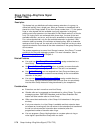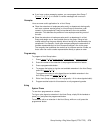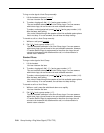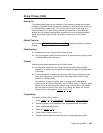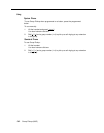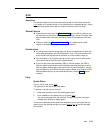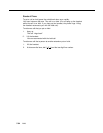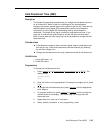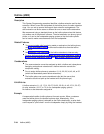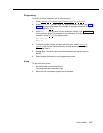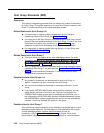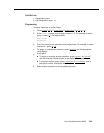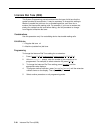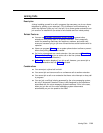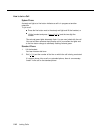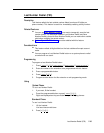
Hotline (#603)
Description
This System Programming procedure identifies a hotline extension and its alert
extension. When a user lifts the handset of the hotline phone, the alert extension
rings. You can set up several hotline and alert extension arrangements. The
alert extension can be the same or different for one or more hotline extensions.
We recommend using a standard phone as the hotline phone since this feature
only makes use of the phone’s intercom. The alert extension can be any type of
phone; or it can be the loudspeaker paging system so that the hotline phone
can be used to make announcements over the loudspeaker.
Related Features
To prevent outside calls from being made or received on the hotline phone,
use Line Assignment (#301) to remove all outside lines from the hotline
extension.
Set Automatic Line Selection for the hotline extension to intercom only.
Remove hotline extensions from Night Service Group Extensions (#504),
Calling Group Extensions (#502), and Hunt Group Extensions (#505).
Considerations
The same extension cannot be assigned as both a hotline and a doorphone.
Assigning a doorphone extension as a hotline extension cancels the
doorphone setting.
Do not assign hotline phones to extension 10, 16, 22, 28, 34, 40, 46, or 52
(which are reserved as power failure extensions).
The hotline phone can receive transferred calls (but the user at that
extension should not pick up the handset until the phone rings).
Valid Entries
A hotline extension (11–15, 17–21, 23–27, 29–33, 35–39, 41–45, 47–51, 53–57)
An alert extension (10–57, or 70 for the loudspeaker paging system)
No hotline or alert extension assigned ✔
Example
A supermarket installs a hotline phone at its meat counter. When a customer
uses the hotline phone, the butcher’s phone rings. Alternatively, if the
loudspeaker paging system is selected as the hotline destination, a sales clerk
could request a “price check” over the loudspeaker simply by lifting the handset.
■
■
■
■
■
■
5-86 Hotline (#603)



